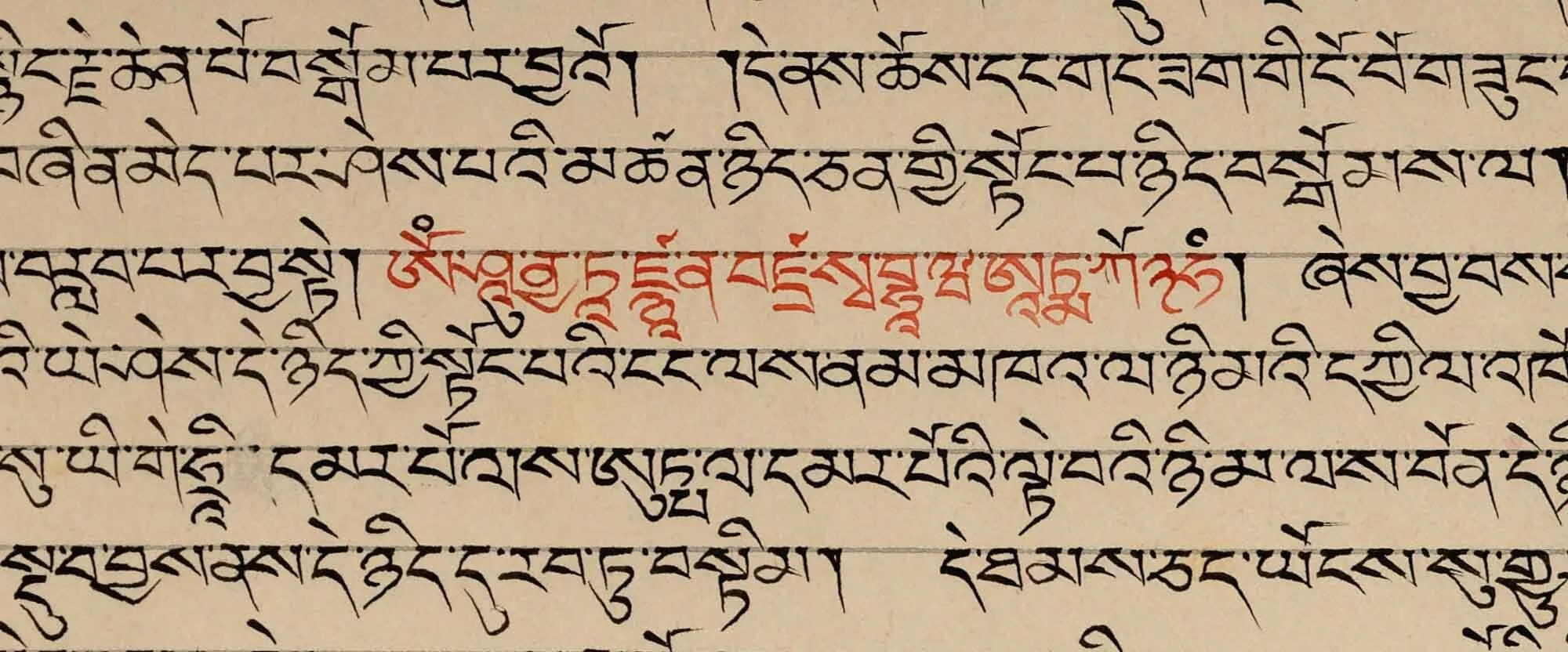Dilgo Khyentse Rinpoche (1910–1991) and Jamyang Khyentse (1893–1959) were both recognised as emanations of a previous Khyentse Rinpoche, but Jamyang was senior by some seventeen years and Dilgo Khyentse regarded him as his root guru. Sangharakshita visited Dilgo Khyentse regularly in 1963 in Kalimpong and received from him initiation into an Amitābha phowa practice and the Kurukullā and Jambhala sādhanas.
“Despite his being so eminent a lama, and so revered, it would have been difficult to find a more unassuming person that Dilgo Khyentse Rimpoche, or one who was more approachable. It was therefore not many months before I was visiting him regularly … for I never felt I was being intrusive, or that I was wasting the Rimpoche’s time.… After a few such visits I observed that the Rimpoche never gave the impression of being disturbed or interrupted in what he was doing. His attention seemed to pass smoothly and seamlessly from one thing to another.”
Precious Teachers, The Complete Works of Sangharakshita, vol. 22, p.554
Initiation texts
After Dilgo Khyenste Rinpoche had given Sangharakshita the Kurukullā and Jambhala practices, he arranged for him to have copies of the texts with explanations of the meditations and of the tantric rituals for transmitting them to others.
“Two weeks later, on 28 October [1963], Khyentse Rimpoche initiated me into the sādhanas of Kurukullā, a dancing red ḍākinī form of Tārā, and Jambhala, the stout golden-yellow bodhisattva of material wealth and spiritual riches. Like the phowa transmission, the ceremony took place in the Rimpoche’s room in the cottage inside the Bhutanese Gompa’s compound. Since there were only three of us, the third person being my interpreter, and since the smallness of the room obliged me to sit quite close to the guru, an atmosphere of intimacy prevailed. Indeed, it did not feel like a formal initiation at all. As on the occasion of the Amitābha phowa transmission, Khyentse Rimpoche resembled an affectionate father who was telling his son, quietly and confidentially, something that would be of immense value to him throughout his life.… I had asked for them at the instigation of Yogi Chen, who was overjoyed that the phowa transmission had given me a spiritual connection with the great Dilgo Khyentse Rimpoche and wanted me to strengthen the connection by taking further initiations from him. Kurukullā and Jambhala would help me in my work for the Dharma, he declared.”
Precious Teachers in The Complete Works of Sangharakshita, vol.22, p.555
Sheathed Khampa knife with bone handle
“I remember that meeting … because Dilgo Khyentse and his wife, especially his wife, wanted to give me something as a little parting present, but they had nothing to give, they were so poor at that time. But his wife searched around and she found a little Khampa knife, about so long, with a bone handle and in a little sheath with a bit of silver mounting, and she gave me that with ‘Oh we're very sorry, we'd like to give you something, but this is all we're able to give, please accept it.’ And of course I still have that in my study at Padmaloka, some of you will have seen it, but not known what the history of it was. So that was their parting present.”
‘Dilgo Khyentse Rinpoche’, a talk given by Sangharakshita in 1991 (https://www.freebuddhistaudio.com/audio/details?num=175)








